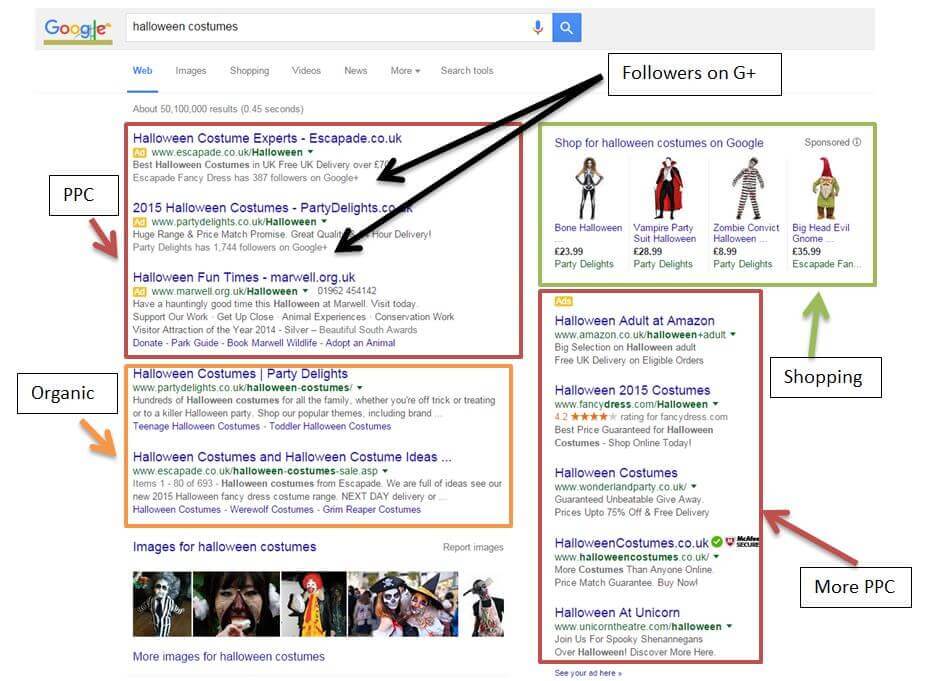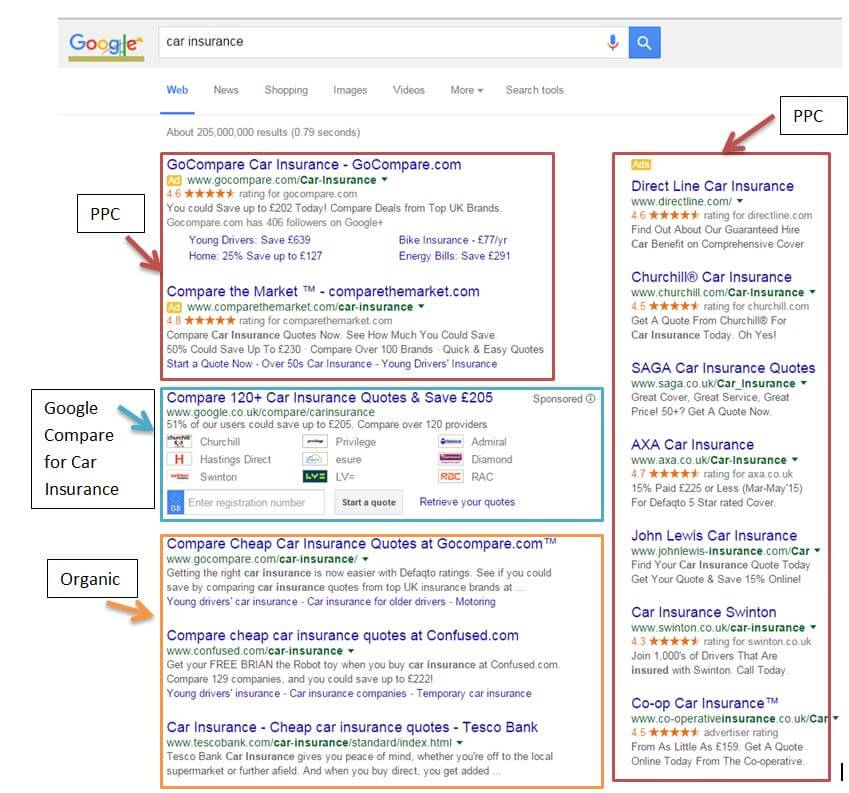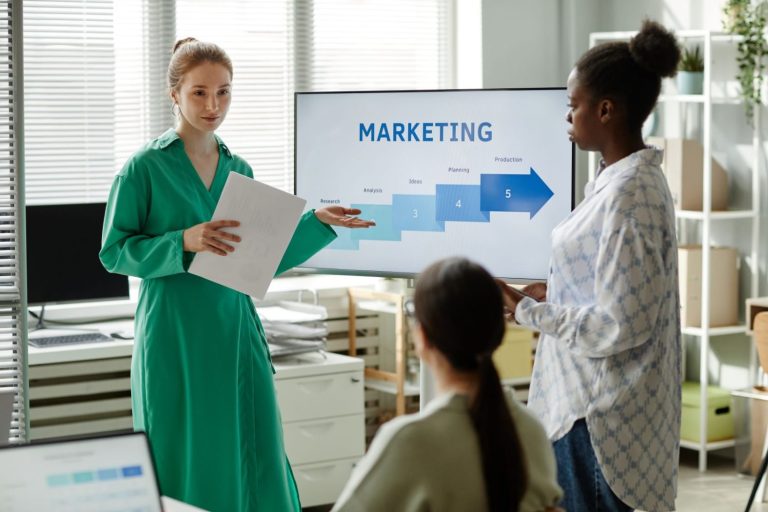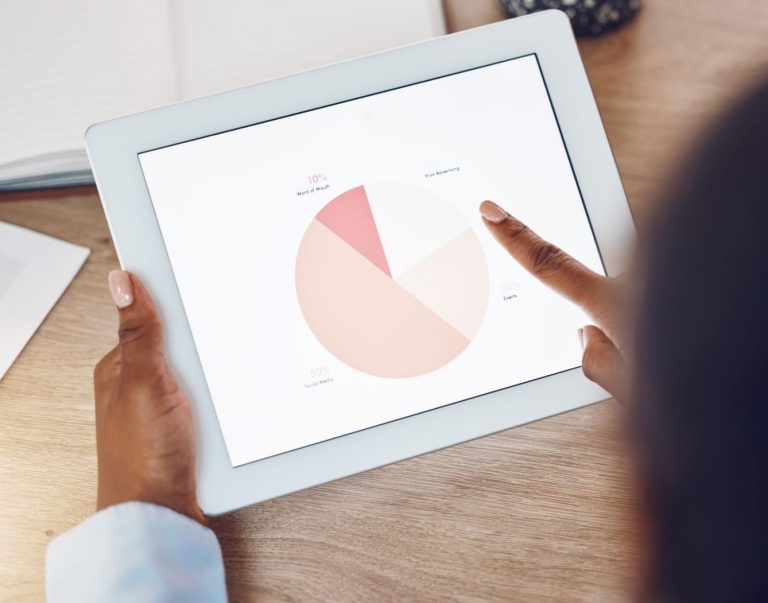I don’t remember the exact date the paradigm changed but I do recall it was sometime in the early 2000’s. That was the date that people stopped believing that you had to pay for advertising.
There was a shift away from the traditional broadcast media models of paying in advance for a placement and hoping your advertisement was seen by your target audience. In the new world anyone could throw up a website and people would beat a path to their door without having to pay for advertising.
In those early days Google was literally a cash machine for some people and getting your site to the top was a guarantee of revenue. It didn’t matter how you did it, the only thing that mattered was getting to the top.
Then in late 2000 everything changed; Google introduced Pay per Click.
It was quite subtle at first and with only a handful of advertisers the adverts didn’t seem that intrusive but over the years that has changed.
Today the bulk of Google’s results pages are filled with advertising and the spread of this has been inevitable. Before long it won’t matter how well optimised your website is for a single keyword as it won’t be seen anywhere above the fold on a desktop or without scrolling on a mobile.
Slowly but surely, Google are making sure that any business needs to pay to be seen.
How did this happen?
Well, in some respects Google is like a drug dealer; give away the first hit for free then you pay for everything once you are hooked.*
Google has a complete monopoly on search in the UK with 95% of all searches going through their platform. They the primary source of business for many businesses in the UK. We are all addicted to it and we all use it. And they can do anything they want with their own property.
Take a seasonal search as an example. If we search for ‘halloween costumes’ this is a typical search result;

As you can see the vast majority of the screenshot is taken up with Google’s advertising options.
In fact of fifteen clickable links twelve are paid Google advertisements; that’s 80%.
The top two advertisers also have within them lines letting you know how many followers these companies have on Google +, as if it’s some kind of recommendation. Just for the record, it’s not.
Of course Halloween is a once a year affair so what about the ‘evergreens’ such as car insurance? Is this any different?

Of course not. In this case there are nine PPC advertisements, a Google comparison box in which all the firms shown pay for the privilege of appearing and three organic listings, of which two are aggregators. Once again just under 80% of the real estate on page is taken up with Google paid options.
What is evident in all of this is that Google is no longer ‘free’.
I argued back in March of this year that Organic traffic was not a right and it is clear that for more and more companies this is becoming a reality. There is hardly a search result left where you don’t see a paid advertisement and this can only continue.
Back in directory days the biggest problem was with the heavy spending sections like Car Insurance, where companies were buying not just multiple adverts but the biggest adverts they could. Everyone seemed to have a company starting with ‘A’ and the front of the section was crammed with the big spenders. Every year the argument was about which advertisement came first.
Now on Google there is a simple solution; the more you pay the higher you come. But the key is that you have to pay.
Having given their product away for free at first so everyone uses it, Google has systematically monetised every part of the service. Today if you want to be seen you have to flip the paradigm once again and realise that you will only really be seen if you pay and the more you pay the more you will be seen.
Some have argued that this will kill SEO but they are wrong, it reinforces the need for SEO. After all optimising your website for search engines is a basic that needs to be in place before you go hurling cash at paid advertising options.
The one thing that we can be sure of however is that the days of easy money and free clicks are dwindling fast.
*For legal reasons I’d better make it clear that I’m not comparing Google to drug dealers, simply that having got us all ‘hooked’ on their product they now expect us to pay for it. Honestly.






